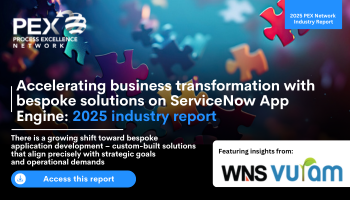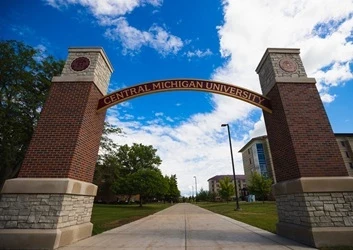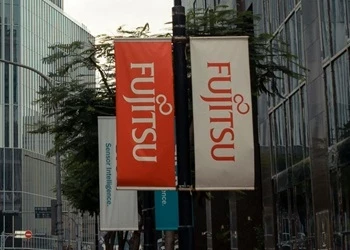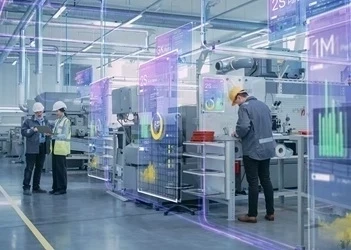thyssenkrupp Rasselstein adopts process intelligence to optimize supply chain transparency & efficiency
thyssenkrupp Rasselstein is using process intelligence and AI to drive continuous digitalization and process optimization
Add bookmark
thyssenkrupp Rasselstein, one of Europe’s largest manufactures of premium packaging steel, is adopting process intelligence to optimize supply chain transparency and efficiency. It is partnering with Celonis to establish a data-driven, connected supply chain to proactively mitigate supply risks, enhance delivery reliability and optimize core processes.
With a legacy spanning over 250 years, thyssenkrupp Rasselstein is a global pioneer in precision-engineered packaging steel. Serving more than 400 customers in over 80 countries, the company operates within a complex international industrial landscape.
Its state-of-the-art production facility in Andernach, Germany – the largest of its kind worldwide – relies on more than 300 interconnected systems, highlighting the high level of operational complexity and potential process fragmentation.
Join the PEX Network community

Don't miss any news, updates or insider tips from PEX Network by getting them delivered to your inbox. Sign up to our newsletter and join our community of experts.
Learn MoreHow process intelligence enhances supply chain transparency and efficiency
To stay ahead of competition and meet the evolving demands of the global steel industry, thyssenkrupp Rasselstein is driving continuous digitalization and process optimization, with an emphasis on enhancing its supply chain efficiency, according to a press release.
The company has three major objectives:
- Reduce manual effort and raise productivity.
- Optimize working capital.
- Improve delivery reliability for the company’s end customers.
With the adoption of process intelligence, thyssenkrupp Rasselstein is driving key business value such as:
- Proactive prevention of material shortages, allowing timely interventions by anticipating potential disruptions.
- Improved delivery accuracy and on-time predictions, resulting in enhanced customer satisfaction.
- Optimized safety stock levels, reducing excess inventory while ensuring production continuity.
- Double-digit million savings potential in working capital, driven by more efficient inventory management and streamlined financial processes.
“Before Celonis, we had limited visibility into our supply chain, which made it difficult to react quickly to supply disruptions,” said Dr Michael Pullen, chief financial officer (CFO) at thyssenkrupp Rasselstein. “Now, we have a real-time overview of our processes, allowing us to manage risks proactively, reduce excess inventory and improve our delivery reliability. This enables us to make better strategic decisions and ensures seamless production planning.”
Register for All Access: Revolution in Process Intelligence APAC 2025!
Combining process intelligence and AI
Artificial intelligence (AI) has become an integral component of thyssenkrupp Rasselstein’s process optimization journey too. By deploying an AI-powered Celonis copilot, the company empowers employees to interact intuitively with data and make faster, smarter decisions using natural-language queries – without requiring advanced analytical expertise.
“Process intelligence enables companies to maximize the ROI of their AI solutions – especially in complex industrial settings like thyssenkrupp Rasselstein’s,” said Florian Schewior, managing director DACH at Celonis. “By bringing together process intelligence and AI, we’re helping customers make smarter decisions today and create more intelligent supply chains tomorrow.”
Looking ahead, thyssenkrupp Rasselstein is preparing the rollout of object-centric process mining (OCPM), which will provide an even more connected end-to-end view of its supply chain. This enhanced visibility will drive further improvements in transparency and operational efficiency, reinforcing the company’s commitment to continuous process optimization.
Accelerating business transformation with bespoke solutions on ServiceNow App Engine

Today, off-the-shelf software solutions offer diverse features that enable vast opportunities to implement and maintain business transformation. However, in some circumstances, capabilities lack the flexibility and specificity required to address the unique challenges and workflows of individual organizations. As a result, there is a growing shift toward bespoke application development – custom-built solutions that align precisely with strategic goals and operational demands.
Download this report to explore how enterprises can harness the power of custom applications to drive meaningful transformation. With the growing adoption of low-code platforms like ServiceNow App Engine, organizations are building custom applications faster and with greater control. By empowering both IT professionals and citizen developers to build tailored solutions, organizations can significantly reduce time to value while maintaining control over quality and compliance.
Download Now
























